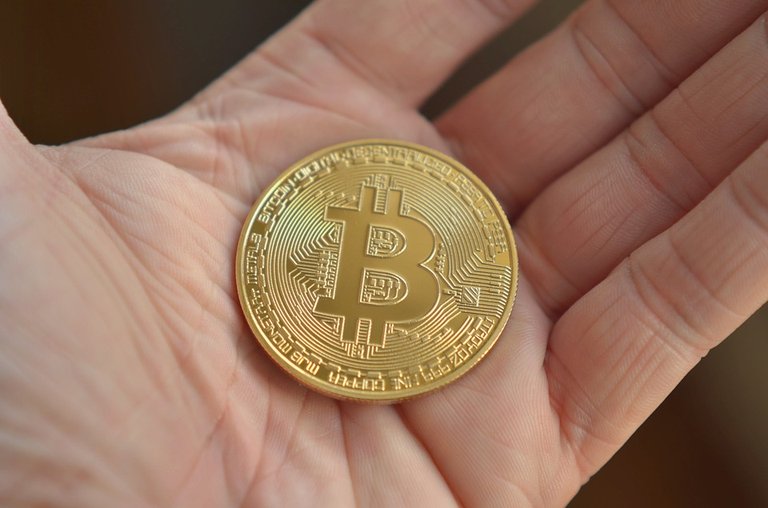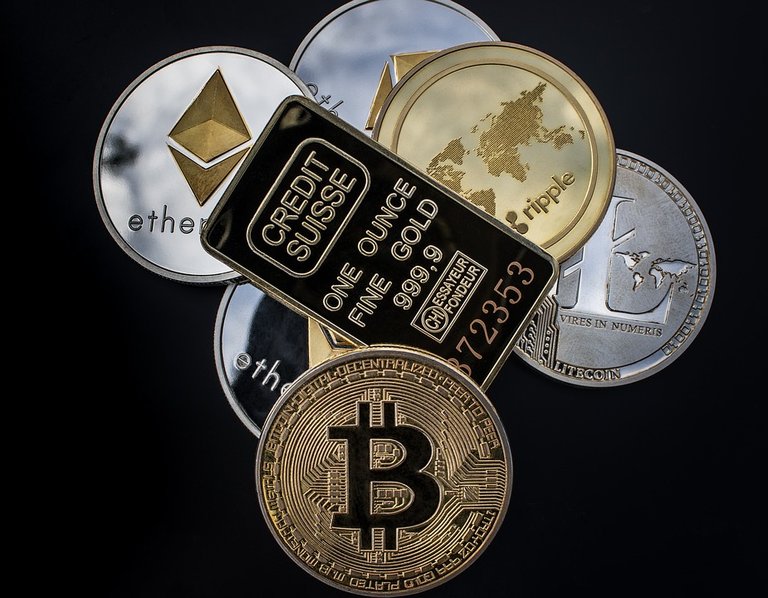
First Cryptocurrencies
The development of cryptocurrency has occurred since the late 1990s, with Wei Dai publishing an account of something referred to as "b-money" -a distributed electronic system that was based on anonymity. Not long after, developer Nick Szabo created "bit gold". Click here, to know the tips on investing bitcoin in IRA.

Bit gold was designed as a decentralized digital currency. In Szabo's scheme, a participant was required to use computation power to solve proof-of-work puzzles (also known as cryptographic puzzles). When these puzzles were solved, they would be sent to a public registry and the solver would be assigned with a public key. Every solved puzzle would be incorporated into the following puzzle, thus creating a growing chain of the new property. This part of the system provided a robust method for the network to verify new coins and add time-stamps to them. If the majority of the parties present on the network disagreed with accepting new puzzle solutions, the next puzzle would not be able to be solved until a consensus was reached. Learn more about the first cryptocurrency blog post here at http://isitvivid.com/why-you-shouldnt-be-concerned-by-bitcoins-share-price-crashing/.
The problem with bit gold was in the double-spending problem. This problem often popped up when users would attempt to design transactions with the digital currency. Once data was created, it would be easy for it to be copied and pasted. In order to prevent this from becoming a problem, most cryptocurrencies gave up some control to a central authority. This was to ensure that all account balances would be tracked and accounted for. Szabo saw this as an unacceptable solution. Szabo wanted to mimic the security and reliability of real-life gold and to him, the most important thing was to never depend on a central authority, regardless of how trustworthy they appeared to be.
The currency was never implemented, but it was said to set the precedent for the architecture behind Bitcoin.
Cryptocurrencies go further than the recent 8-year-old breakthrough. Admittedly, Bitcoin is a result of numerous failed attempts at digital cash in the late 80s due to the involvement of trusted third party systems. These failures, as a result, gave way to varying opinions that have kept a number of people either for, against or plainly confused about cryptocurrencies. 
The Bitcoin is different, in the sense that it is an open ledger in which information is distributed to all peers without the need for a third party Overseer, rather, this Peer to Peer system proves trustworthy and guarantees security because of the fact that each transaction on the blockchain, represented by cryptographic codes, is required to be solved and verified by the consensus of every member. Basically, Bitcoin offers a secure and decentralized way of exchanging money via the internet. So the risks of transactions winding up in the wrong account or double spending are avoided.
The Emergence of Bitcoin
In 2009, Bitcoin was the first successfully decentralized cryptocurrency to emerge. The currency made use of a cryptographic hash function that went by the name SHA-256 - this was the puzzle-solving/proof-of-work scheme that it made use of.
Bitcoin is more than a currency, it is a commodity too. While the digital currency can be used to purchase products from major retailers. Government authorities, the IRS for example, treats Bitcoin as property. The IRS released a guide on Bitcoin for the sake of tax, stating that it will treat digital currency as property.
When Bitcoin first came onto the scene, it was met with a great amount of skepticism. Critics rushed to give reasons as to why the digital currency would not last. Information on the digital currency was limited and many people were left in the dark. But as time went by, Bitcoin's value started to rise and it received more attention. Computer retail giant, Dell, became one of the largest companies to adopt Bitcoin in their system. Soon, other companies such as airBaltic, Expedia, and even Microsoft, started to accept Bitcoin as a form of payment. The value of the digital currency has shot up within the last year, has shot past the $4000 threshold in August 2017.
The thing that astonished people the most is the fact that everything about Bitcoin is open and accessible to anyone. Bitcoin was not created for a select group of people. If anything, it appears that Nakamoto designed Bitcoin for the people. Bitcoin is completely contrary to the classist, centralized authorities that exist in the "real world". Its protocol and software are published for all users to see. Anywhere in the world, a developer can review the code and create their own version of Bitcoin software. Bitcoin is not the only kind of cryptocurrency.
There is no single authority of the Bitcoin network. Bitcoin is controlled by global Bitcoin users. Developers may work at improving the software, but they are unable to effect a forceful change to the software's protocol.
Users have the freedom to choose the software and edition of Bitcoin that they would like to utilize. The Bitcoin software has a set of rules that every other Bitcoin version must comply with in order for everything to remain compatible. A general agreement among all the users must be present in order for the network to work properly. This is why users - and developers - have a strong desire to keep the agreement intact. If they don't, everyone will lose
Over the years, interest in Bitcoins has increased both among individuals and governments. In countries such as Germany, it is 100% legal to use Bitcoin and the German tax authority even has a website offering useful information such as articles on how to tax one's bitcoin. Also, in Africa, Kenya, along with South Africa, Ghana and Nige-ria are the four main African countries to have embraced the use of Bitcoin and offer conducive environments and sufficient provision to ensure that this movement thrives among people willing to start up their own private businesses. 
Birth of Altcoins
It can be said that Bitcoin gave birth to a number of other digital currencies - altcoins. The term "altcoin" refers to existing cryptocurrencies that were derived from Bitcoin. Some of them, like Ethereum and Litecoin, have risen to be success-fully traded currencies.
4 years after the creation of Bitcoin, another system platform promising a brighter future emerged. Ethereum, the brainchild, and creation of the 19-year-old programmer from Toronto, Vitalik Buterin, stepped into the scene offering a wider platform for all developers pursuing the construction of any kind of decentralized applications such as smart contracts.
While Bitcoin aims to displace the centralized electronic transfer of money over the internet, Ethereum seeks to decentralize the whole sphere of influence of servers and clouds on the internet and hands the "power", so to speak, to volunteers from anywhere around the world that run the blocks. This, in a way, ultimately fulfills the true essence of the "world wide web".
In the Ethereum blockchain, Miners earn Ether, a type of crypto token which is used to run the blockchain, but more importantly, the idea behind Ethereum goes beyond transactional activities unlike Bitcoin and goes further by having the ability to run the codes of decentralized applications on the platform. 
Observers have noted that within the next few years, Bitcoin's dominance will have dwindled as other currencies continue to gain traction. Every digital currency, like Bitcoin, is designed with the intent of being traded. But cryptocurrencies such as Ethereum and Litecoin have added their own unique features in order to provide other services for users. Bitcoin was not developed with the intent of becoming a monopoly. It was created to inspire the birth of a community of decentralized currencies.
Image source: https://pixabay.com and https://giphy.com, https://steemit.com
Coins mentioned in post:
No it isn't! It is an asset, a very cool asset, but will never be money, regardless of whether it is accepted as such by Microsoft and others or not. Well, in my opinion.